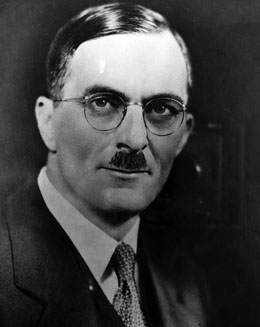On March 25, 1935, Governor Clarence D. Martin (1887-1955), a conservative Democrat, signs the Revenue Act of 1935, the most comprehensive tax overhaul in the state’s history. It has remained the state’s basic tax system ever since, with regular if relatively minor changes.
Depression woes had deepened in Washington state and in the country in 1935, and yet another attempt at an income-tax constitutional amendment had failed in 1934.
The Washington State Legislature generated a massive tax overhaul with no less than 17 titles and 200 sections. It proposed personal and corporate income taxes; a retail sales tax of 2 percent; a new business-and-occupations (B&O) tax; and several minor taxes on liquor, cigarettes, public utilities, fuel oils, radios, stock transfers, toiletries, and medicines.
The 2 percent tax on retail sales, with some exclusions for basic food items, was the most controversial. Democrats to the left of Martin, farmers, the Grange, and Washington Education Association (WEA) denounced it as regressive, with low- and middle-income households paying a higher percentage of their incomes in taxes than upper-income households.
Language Massaged
The income tax measures had been carefully phrased to meet the inevitable constitutional challenges. The income tax was recast as a "privilege tax" (Harsch) to be paid "for the privilege of receiving income (in the state) while enjoying the protection of its laws" (Roberts).
After a stormy legislative session, both houses passed the major measures on March 14, 1935. Martin signed the legislation 11 days later, but line-vetoed taxes on fuel oil, radios, stock transfers, toiletries, and medicines.
Neither the leftist Washington Commonwealth Federation nor the right-leaning Washington Taxpayers’ Association was happy with the final product and lawsuits were immediately filed to challenge the income taxes, B&O tax, and retail sales tax.
Thurston Country Superior Court Judge D. F. Wright, who had ruled the income tax unconstitutional in 1933, did so again, but ruled the retail sales tax constitutional. The B&O tax also passed constitutional muster.
The state Supreme Court upheld Wright on appeal, again by a 5-4 decision, unmoved by the state legislature’s attempt to finesse the definition of income.
With the sales and B&O taxes a reality and a lid on property taxes, the pressure for an income tax had diminished but the Grange, WEA and other reformers wouldn’t give up. Income-tax proposals would be offered several times, up to the present day.
With the Revenue Act of 1935, the state’s principal revenue sources shifted from property taxes to excise taxes -- taxes measured by a transaction such as the selling price of an item. In fiscal year 2003, taxes authorized in the Revenue Act of 1935 generated three-fourths of all state tax receipts supporting the general fund, according to the state Department of Revenue.

